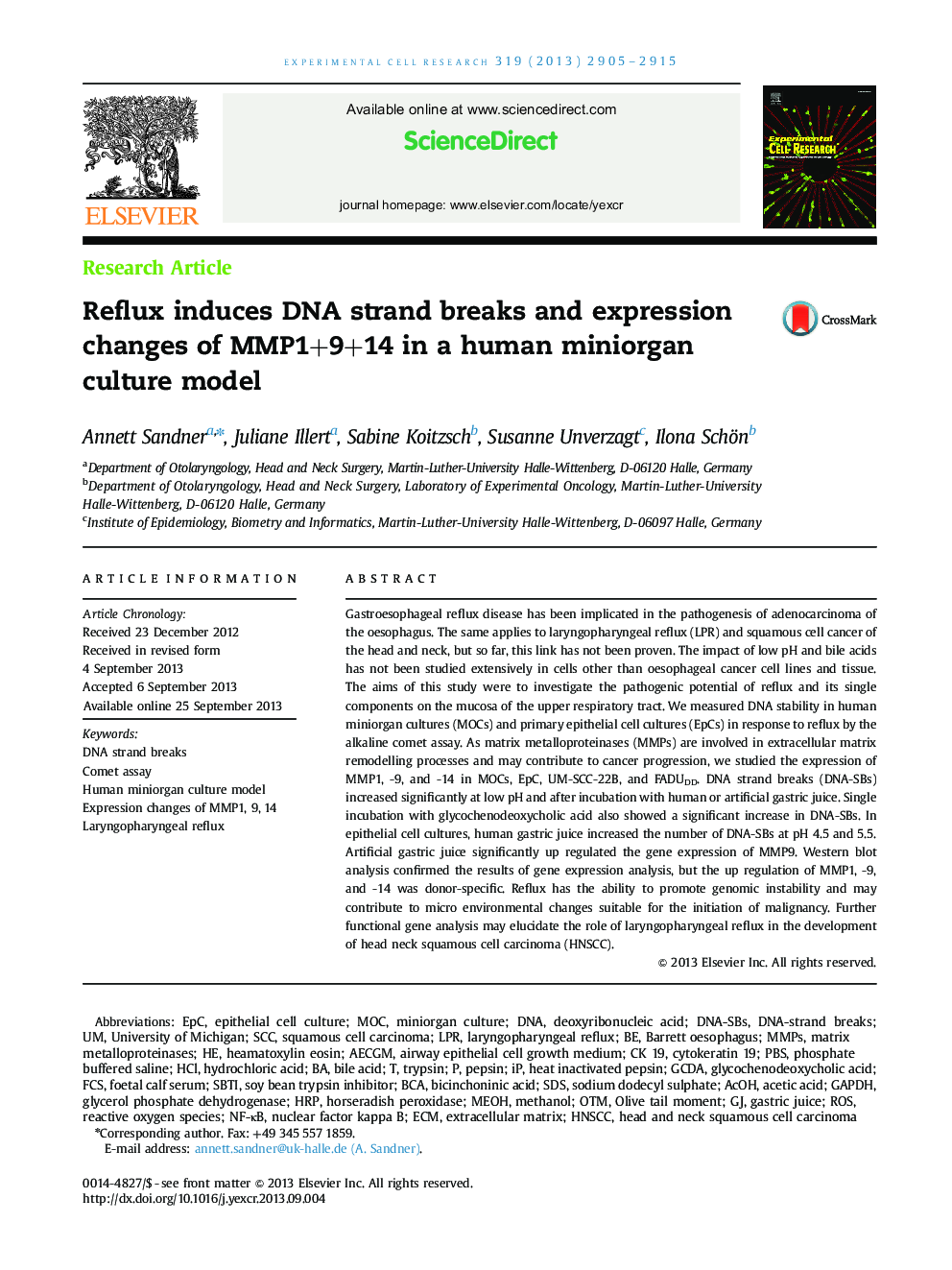| Article ID | Journal | Published Year | Pages | File Type |
|---|---|---|---|---|
| 2130417 | Experimental Cell Research | 2013 | 11 Pages |
•The lower the pH, the more frequent DNA SBs in human MOCs incubated with gastric juice and simulated GJ.•This is also applicable to primary epithelial cell cultures.•Reflux induces expression changes of MMP1, -9, and -14 in MOCs.•Data from UM-SCC-22B+FADUDD showed an analogical gene expression for MMP1, -9, and -14 after reflux exposure.
Gastroesophageal reflux disease has been implicated in the pathogenesis of adenocarcinoma of the oesophagus. The same applies to laryngopharyngeal reflux (LPR) and squamous cell cancer of the head and neck, but so far, this link has not been proven. The impact of low pH and bile acids has not been studied extensively in cells other than oesophageal cancer cell lines and tissue. The aims of this study were to investigate the pathogenic potential of reflux and its single components on the mucosa of the upper respiratory tract. We measured DNA stability in human miniorgan cultures (MOCs) and primary epithelial cell cultures (EpCs) in response to reflux by the alkaline comet assay. As matrix metalloproteinases (MMPs) are involved in extracellular matrix remodelling processes and may contribute to cancer progression, we studied the expression of MMP1, -9, and -14 in MOCs, EpC, UM-SCC-22B, and FADUDD. DNA strand breaks (DNA-SBs) increased significantly at low pH and after incubation with human or artificial gastric juice. Single incubation with glycochenodeoxycholic acid also showed a significant increase in DNA-SBs. In epithelial cell cultures, human gastric juice increased the number of DNA-SBs at pH 4.5 and 5.5. Artificial gastric juice significantly up regulated the gene expression of MMP9. Western blot analysis confirmed the results of gene expression analysis, but the up regulation of MMP1, -9, and -14 was donor-specific. Reflux has the ability to promote genomic instability and may contribute to micro environmental changes suitable for the initiation of malignancy. Further functional gene analysis may elucidate the role of laryngopharyngeal reflux in the development of head neck squamous cell carcinoma (HNSCC).
